
Latest Coronavirus Disease COVID 19 News and Research
Portable, reusable coronavirus sensor produces results within a minute
"Testing, testing, testing." It's a mantra that health officials have been constantly promoting because screening people for COVID-19 is the best way to contain its spread. In the U.S., however, that crucial necessity has been hampered due to a lack of supplies.
How the pandemic and an anti-vax health official are roiling a Montana community
Even as Montana begins a gradual easing of stay-at-home restrictions intended to curb the spread of the coronavirus, the political schism it highlighted is creating reverberations in one community in the northwestern corner of the state.
Economic blow of the coronavirus hits America’s already stressed farmers
Richard Oswald, still mourning the loss of his family's homestead to flooding along the Missouri River, is planting corn and soybeans into ground that last year was feet deep underwater.
DFG to set up new clinical and research units
The Deutsche Forschungsgemeinschaft (DFG, German Research Foundation) is setting up three new Research Units and one new Clinical Research Unit.
Identifying targets for development of COVID-19 drugs & vaccines
AMSBIO has extended its COVID-19 research portfolio with the introduction of a service to provide custom lentivirus pseudotyped with spike glycoprotein from SARS-CoV-2 to help researchers identify potential targets for development of therapeutic drugs and vaccines.
Antibiotic combined with measurement technology may save time and money in developing new active ingredients
A minimal – and therefore innocuous – dose of an antibiotic coupled with highly sensitive measurement technology could save time and money in the development of new active ingredients.
Researchers shed new light on the structure of RNA
Australian and US researchers have made a breakthrough in understanding the structure of a key genetic molecule, called RNA, and revealing for the first time how these changes impact RNA's function.
Treating hospitalized COVID-19 patients with anticoagulants may improve their survival chances
Treating hospitalized COVID-19 patients with anticoagulants-;blood thinners that slow down clotting-;may improve their chances of survival, researchers from the Mount Sinai COVID Informatics Center report.
BIOCAD becomes Vector’s industrial partner to develop COVID-19 vaccine
The biotechnology company BIOCAD has signed an agreement with the State Scientific Center for Virology and Biotechnology «Vektor» (Novosibirsk) on joint work on a vaccine based on rVSV against the COVID-19 virus.
Researchers develop nano-based anti-coronavirus surface coating
The coronavirus, SARS-CoV-2, which is responsible for the current COVID-19 pandemic, is transmitted between people mainly via respiratory droplets, but it is known that the virus remains stable on various surfaces for days.
Researchers show how bats carry the MERS coronavirus
A University of Saskatchewan (USask) research team has uncovered how bats can carry the Middle East respiratory syndrome (MERS) coronavirus without getting sick--research that could shed light on how coronaviruses make the jump to humans and other animals.
Pivotal to support new clinical trial for COVID-19 patients
Pivotal, a European-wide full-service CRO, has announced today that it has been contracted to provide specialized clinical research services in a clinical trial to study the efficacy and safety of hyperimmune plasma, obtained from cured and convalescent COVID-19 patients, in the treatment of hospitalized patients with COVID-19 who are admitted in an acute phase.
Arrayjet develops COVID-19 antibody screening technology to facilitate vaccine development
Arrayjet Limited, the Scottish-based bio-printing technology specialist for the life sciences industry, has re-purposed its in-house antibody screening technology to create a population-scale diagnostic program that will help scientists better understand the behavior of the Covid-19 virus and further the rapidity of a global vaccination program.
The effect of weather on COVID-19 infection rate
Viral epidemics are nothing new in human history. Several viruses circulate freely every year among human beings, causing seasonal outbreaks of disease and death, such as the seasonal flu. A new study published on the preprint server medRxiv* reports that temperature plays a significant role in the growth of the ongoing COVID-19 pandemic.
Air pollution associated with greater virulence of COVID-19
A new study published on the preprint server medRxiv* in April 2020 provides convincing evidence that air pollution contributes to greater severity of COVID-19. The researchers say, “This suggests the detrimental impact climate change will have on the trajectory of future respiratory epidemics.”
SARS-CoV-2 in wastewater and rivers
A new study published on the preprint server medRxiv in May 2020 shows that while the virus causing COVID-19 may be present in wastewater and rivers, the biological agent is typically devoid of vitality and unable to cause active infection. This should provide some relief to public health authorities in their quest to contain the virus.
Study discovers inhibition of SARS-CoV-2 entry priming protein by approved drug
The COVID-19 pandemic caused by the severe acute respiratory syndrome -coronavirus 2 (SARS-CoV-2) has spread to most of the world, causing millions of cases and hundreds of thousands of deaths. A new study published on the preprint server bioRxiv* shows that a protease inhibitor drug already approved by the Food and Drug Administration (FDA) could inhibit viral entry.
Low CD8 and NK cell counts in the lung linked to high SARS-CoV-2 ACE2 receptor levels
A new study published on the preprint server bioRxiv in April 2020 reports that low levels of specific immune cells, namely, CD8 T cells and NK cells, are linked to higher expression of the ACE2 molecule, which acts as a receptor for the CoV.
How do the betacoronaviruses evolve?
Researchers have worked on the evolution of the pathogenic strains of the betacoronaviruses including the SARS CoV-2 that has caused the COVID-19 pandemic.
Research looks at best ways to disinfect N95 masks for reuse
The world is gripped by the COVID-19 pandemic caused by the severe acute respiratory syndrome coronavirus 2 (SARS-CoV-2). The health care personnel and those caring for these patients are at considerable risk of contracting the infection. N95 masks have been mentioned as protective face gear to cover the face, nose, and mouth of the user to prevent the spread of the infection via aerosols generated while coughing, sneezing, or even breathing.



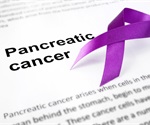
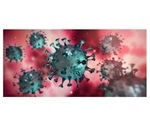


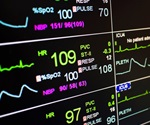
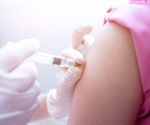
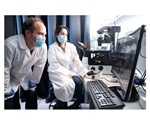
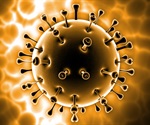
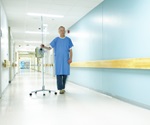






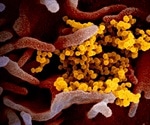

































No hay comentarios:
Publicar un comentario